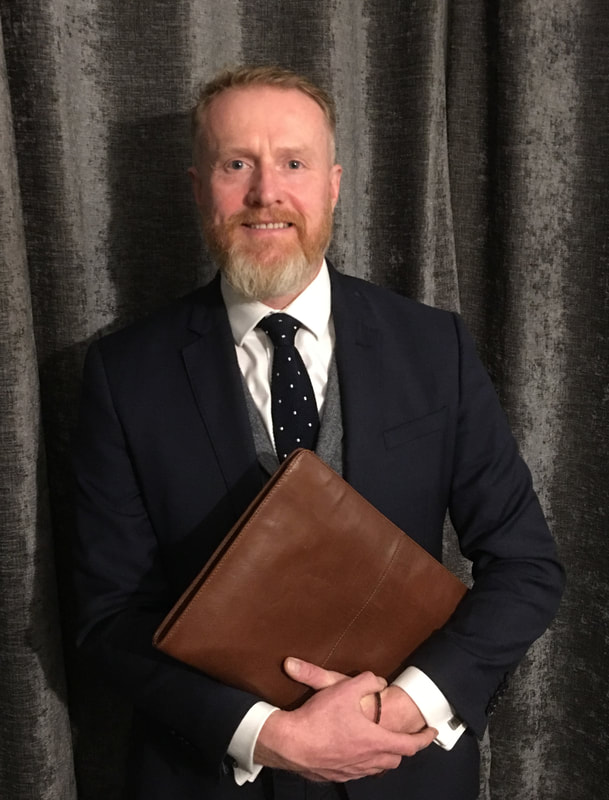|
Thanos - If you consider failure experience?
Loki - I consider experience experience. Avengers: Infinity War - 2018 In the direct aftermath of the airing of ‘School’ I have been inundated with correspondence. It has come from all corners of the education world and beyond. A significant proportion of it has come from School Leaders wanting to share their stories with me. In all the conversations with Headteachers/Principals, one common strand keeps coming to the fore. When asked a version of this question – ‘what support are you getting?’ the responses are all very similar. The similarity is that in all cases there has been an attempt by the leader to outline where they get support from: Governors, fellow HTs, Trusts, LAs but, in all cases, it has been wholly unconvincing. That’s not to say that support is not available. All of those listed above are offering support, alongside a variety of other agencies that Schools and their leaders can buy or opt into. There is support available from NLEs, SLEs, School improvement advisors etc. etc… There appear to be two separate issues: 1) The majority of the support being made available to school leaders falls into the arena of school improvement. Most of the school leaders I have spoken to have discussed how this is useful, but that it also feels limited. Many have shared that it is valuable to have an external set of eyes to assess the school improvement strategies and their impact. To cross check and benchmark your own evaluation is supportive. However, there are some limitations that keep being referred to: a. There is a limit to the depth that can be achieved in a small number of visits made over the course of a school year b. In challenging schools there may be a range of different ‘external eyes’ made available – whilst this support is welcomed there is a feeling that it is also disconnected. The SIA might reflect and suggest a different set of conclusions to the NLE to the LA/trust support to the HMI. This can be very difficult to manage strategically. To ignore the conclusions is not an option so they must be acted upon – How to respond to all the identified ‘priorities’ in a managed way? That does not leave staff feeling assaulted by the ‘oh and another thing’ approach. c. The background context of the leaders offering the support. Our system is set up so that many of the individuals allowed or in a position to offer support are coming from a background of good/outstanding schools. (There is a broader problem with this in that there is evidence to suggest that the reliability of these judgements is questionable, but, let’s put that to one side and assume that all the inspection conclusions are accurate). The issue identified by the HTs that I have spoken to is that the advice being offered is limited by the experiences of the individuals offering it. It’s not that they don’t have useful advice but perhaps we need to recognise that the HT of a Grammar school that is outstanding is not necessarily the best person to advise the HT of a large urban comprehensive in a deprived area. I use an extreme example to illustrate the point, there will be plenty of less extreme versions of this phenomenon. 2) There is little in the way of support that is directly focussed at looking after our leaders and their leadership teams. In increasingly and endlessly challenging times, where not only are we being asked to do ‘more with less’ and achieve higher standards, I have to wonder, who, exactly, is looking after headteachers. I would hope that it is obvious that, there is the need to skill leaders up to look after themselves and their teams. The culture generated within an organisation for all the staff who work in it, stems from the leadership team and will be a reflection of it. If the senior team are not looking after themselves or being looked after it follows that this culture will be reflected in the rest of the organisation. This has been outlined in some detail (with yours truly as a reference point) in this blog post by Viv Grant. Where this support is available to schools it is contracted in – this in itself is a problem. At a time of decreasing money and HTs scratching their heads to find money to preserve front line services you can guarantee that the last thing they are likely to do is spend valuable monies on a coaching programme for themselves and their senior team. I think it is time to rethink: 1) Can we take a more connected approach to school support and scrutiny? 2) Can we drop the assumption that the only leaders worthy of advising or supporting other leaders are those from a background of good/outstanding schools? I launched this blog with a quote from ‘Infinity Wars’ because in my more cynical moments I feel that to be the HT of an RI or SM school is to be tarred and feathered with ‘failure’ – I prefer to go with the God of Mischief on this one and regard any leadership experience as experience and therefor to be learned from! 3) Is it not time that we acknowledged that school leadership is inherently stressful (joyful and amazing too!) and that our school leaders deserve to be supported with free-to-access coaching support for them and the senior team. If we take this approach we have a chance of stress proofing school leaders through a proactive strategy rather than waiting for them to stumble and fall when the pressure gets too much.
2 Comments
Many a hand has scaled the grand old face of the plateau Some belong to strangers and some to folks you know Holy ghosts and talk show hosts are planted in the sand To beautify the foothills and shake the many hands There's nothing on the top but a bucket and a mop And an illustrated book about birds You see a lot up there but don't be scared Who needs action when you got words When you're finished with the mop then you can stop And look at what you've done The plateau's clean, no dirt to be seen And the work it took was fun Well the many hands began to scan around for the next plateau Some said it was in Greenland and some in Mexico Others decided it was nowhere except for where they stood But those were all just guesses, wouldn't help you if they could (Plateau - Nirvana MTV unplugged in New York) Randomly, whilst reading various blogs and posts on twitter I started to hum the tune and then selected sequences of lyrics from Nirvana’s ‘Plateau’. This is a song (and album) that I haven’t listened to in years but it has always struck a chord with me. In essence, it is a song about conforming, sense of loss and of feeling lost once your ambitions have been fulfilled. It’s about the realisation that once you have reached the Plateau and played around up there for a little bit, that there are others… but you’re not quite sure where they are or how to get to them. I couldn’t help but feel that this is a reasonable description of the current state of education. You see the tune popped into my head whilst I read (for the third time) Lord Jim Knight’s speech in the House of Lord’s (transcript and video here). Like many, it resonated deeply with me. I had also just read Teacher Toolkit’s excellent Christmas wish list/Manifesto. So much common sense in a simple to access ‘Dear Santa’ letter, I sincerely hope that the letter makes it to the North Pole. In my reflective state I thought about my own experience as a Headteacher at Marlwood School. I’m not naïve or conceited enough to think that we were trying to deliver a paradigm shift in education at Marlwood. However, we were trying to do things differently, in part because we had no choice, in part because it felt right to. The financial constraints coupled with 5 years of significantly changing cohort sizes meant that we had to be creative, the traditional structures that work in most schools were not going to work for us during the period of transition from a large rural comprehensive (the past) to a small rural comprehensive (the future). Within all of that there was also the matter of rapidly and significantly improving the quality of the education children were experiencing. On top of that was the need for a cultural shift amongst the students themselves, to get all of them to aspire to be their best (many did but not all of them) and to get them to be excited about their education. We worked with ‘Whole Education’, we researched widely, we developed, we invested in staff (time, not money, we didn’t have any money). We did so unencumbered by any OFSTED rating, we were free of the school’s past and heading to a bright new future. What’s that got to do with the Plateau I hear you cry! Well, naively, I thought that we were scaling our own Plateau, we were only partway up but we had a clear idea of what the top of our own version of excellence would look like, our own Plateau. As long as we could articulate our journey and our method for reaching the plateau we would be left to finish the climb. As it transpired, we were told in no uncertain terms that we were climbing the wrong plateau, that we needed to climb that one over there, the one that everyone else is climbing because they have been told to. Like many in education I am not against accountability, I think OFSTED have a vitally important role to play in education. However, like many, I am deeply uncomfortable with the effect and impact of the framework on the way we do things in our schools. I am even more uncomfortable with the impact created by the introduction of a new framework. If you made it to the top of the current plateau you probably have the time and capacity to see the top of the new one and race off in that direction… but what if you are still making the climb? Stuck partway up for reasons beyond your control, by the time you make it to the top, you’ll find that the whole crowd have moved on. Forever trying to catch up. In OFTSED land there is only one plateau to climb, and it’s theirs, this feels wrong. What if Jim (and the other voices on the plain) are right? What if we are all climbing the wrong plateau? What if the top of the one we are being directed to climb is ultimately unfulfilling for staff, students and parents alike? What if it’s time to build our own Plateau? Metaphor stretched to breaking point. For now, I’m with Jim, now that sounds like a song worth singing!  Lord Agnew has ‘doubled-down’ on his Champagne offer, robustly defending his viewpoint – we seem to have a huge perception gap between the financial ‘big picture’ view held by the DfE and the on the ground reality experienced by school leaders across the land – What’s going on?? So I woke this morning to read this article in Schools Week – in which Lord Agnew vigorously defends his ‘Champagne’ deal stating that he needs to ‘stir up some controversy’ and turn up the ‘amperage’ in the debate around school funding. This follows 'Little Extras' and Dominic Herrington's 'Crisis, what crisis?' article in the TES. We can be clear, the ‘Champagne’ offer was no careless slip of the tongue – no accidental slight to the profession here, a full-on deliberate attempt to rattle the cage. Ok, cage rattled… but let’s try to unpick what is being said here. If there was any doubt before it is now absolutely clear that Lord Agnew, and therefore the Government more broadly, believe that there is plenty of money in education and if schools are struggling financially it must be because school leaders don’t know how to run them efficiently. There can be no doubt that this mindset is deeply entrenched in the DfE. I’m trying to reconcile that to my own experiences as a Headteacher and, since the airing of ‘School’, the experiences shared by other school leaders from across the land. For example, this afternoon I will be speaking to a primary school headteacher who has already been through 2 restructures in order to save £250,000 and is now in the position where he needs to save further money and is looking at 5 redundancies. In fairness, Lord Agnew acknowledges that there are ‘pressures’ especially if you are schools in a particular context but I would argue that those pressures are far more widespread than he appears to want to acknowledge. Looking at this from a business point of view (after all he is making the case specifically about ‘back-office’ functions) is he right? Can more money be saved? Well, yes it can, but at what cost? Firstly, there is the coldness of the sweeping statement about cutting back-office personnel – it’s only numbers on a page after all let’s not worry about people and their jobs – savings to be made right? Ok, let’s put that to one side. How exactly is this achieved Lord Agnew? Even in a MAT this process is nowhere near as straight forward as is implied in this article. Yes, let’s centralise those functions – but the reality of the transition period will, in my experience: 1) Leave schools that are in position to move quickly (because staff have moved on), without many of those functions, this then means that this work has to be picked up by someone else (SLT?) whilst they wait for the MAT to create the central team 2) Leave the trust with the job of having to implement HR process for those school’s not in the position to move quickly. This needs to happen in order to free up the money and the personnel to create the central team What results is a lengthy transition period where you have a hybrid model. The point is it takes time and the capacity of leaders, at a very time when you are looking to make savings and reduce the demand – result, extra pressure on everyone in the system, to what end? To save how much? What if you are not in a MAT, as a stand-alone academy or school still under LA control. If you decide to make savings in back office functions who are you going to contract to cover this work? Conclusion, if there are savings to be made it is not as simple to achieve as is being presented and it is questionable as to how much money is actually going to be saved, especially during the transition period. The second point here is that the feeling on the ground is that the savings that are required will not be achieved by cutting ‘back-office’ function. Many schools are having to make painful decisions about pastoral support and classroom teachers. Wherever you are on the ‘savings to be made’ spectrum you will be aware that difficult times lie ahead and all of this will be a distraction from leading your school and ensuring education and learning are your priorities. The point Lord Agnew makes about ‘deals’ made to trusts is a distraction. First of all, by his own admission this was 18 months ago – things have changed a lot since then. Secondly, surely you have to ask yourself about the culture that exists in education where not one person replies to you – why might this be? Perhaps no-one wants to stick their head above the parapet, in the current climate that wouldn’t be a huge surprise. I for one can’t see how this latest interview is helping to change that culture. What I can see is a whole lot of school leaders, who having read this article this morning, are yet again left wondering if anyone is prepared to listen to them. Maybe it is hard to be heard above the noise of all of the popping champagne corks. |
Author
James Pope - experienced school leader and passionate about the need for change in our profession! Archives
June 2020
Categories |



 RSS Feed
RSS Feed